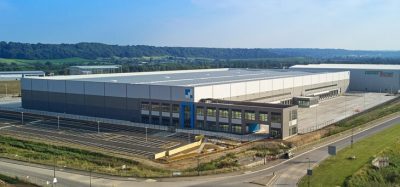UK food: more expensive than you think
- Like
- Digg
- Del
- Tumblr
- VKontakte
- Buffer
- Love This
- Odnoklassniki
- Meneame
- Blogger
- Amazon
- Yahoo Mail
- Gmail
- AOL
- Newsvine
- HackerNews
- Evernote
- MySpace
- Mail.ru
- Viadeo
- Line
- Comments
- Yummly
- SMS
- Viber
- Telegram
- Subscribe
- Skype
- Facebook Messenger
- Kakao
- LiveJournal
- Yammer
- Edgar
- Fintel
- Mix
- Instapaper
- Copy Link
Posted: 30 November 2017 | New Food | No comments yet
The retail price of food used to be exactly what it said on the label – an amalgamation of contributions from each link in the supply chain, adding up until it appeared on the shelf or behind the counter. But a report from the Sustainable Food Trust has unmasked the stark contrast between what the consumer pays and how much the product truly costs public health, the environment and society.


The growth of industrial-scale farming, international food manufacturing, and an equally massive chemical industry to go with them, has made the straightforward ‘get-what-you-pay-for’ philosophy archaic. The Sustainable Food Trust’s report claims that, for every £1 the UK consumer spends on food, they incur an additional hidden cost of £1. This means that in addition to the £120bn spent annually on food in the UK, the country’s food system generates further costs of £120 billion, nearly 30 times higher than previous estimates.
‘The Hidden Cost of UK Food’, published on November 21, reveals that 37 per cent of this cost comes from diet-related disease. A total of £44.91bn is incurred every year from conditions such as cardiovascular disease, diabetes, cancer and obesity, driven by widely available food and fast food culture. The nutritional content of food has changed. One example used in the report is the decline in levels of long-chain omega-3 fatty acids in farmed fish.
In the UK, where healthcare is by-and-large a public service, this means the bill run up behind the scenes is sent to the NHS and through them the British taxpayer. The consumer pays twice.
Next after diet-related disease came natural capital degradation. Natural capital is defined by the World Forum on Natural Capital as the world’s stock of natural assets. These generally include geology, soil, air, water and all living things. But the report adds to that list mineral deposits, fossil fuels, pesticides and antimicrobials. These are used up or damaged by modern farming at an alarming and unsustainable rate, resulting in costs through things like greenhouse gas emissions, chemical run-off into fresh water systems and the £12bn of food wasted every year.
There was also £16.08bn drummed up by food-production health costs. These are costs related to the process of creating the food, not the food itself. Most of this was incurred by organophosphate pesticides. Research on the effect of pesticides on health is most reliable when it looks at exposure to agriculture-related endocrine disrupting chemicals (EDCs) the report says. But these studies rarely quantify that impact. Research into organophosphates, chemicals used in both pesticides and nerve agents, presents an exception. Its effect on British health represents 75 per cent of the overall health costs incurred by food production.
The report gives a mention to dementia in this context, saying that there has been some debate about the relation of pesticides to neurodegenerative diseases. But, it concludes, there are no reliable estimates of what proportion of Alzheimer’s or Parkinson’s disease cases were related to pesticide use so it has been left out of overall estimates.
The shadowy food economy
Patrick Holden, Chief Executive of the Sustainable Food Trust, says: “There is a shadow food economy which we all contribute to without realising it. For every £1 we hand over at the till another £1 is quietly taken from us without our consent. The current UK food system thrives only because it does not account for the full costs of production or consumption, which are paid for in hidden ways. Those who pollute or degrade do not pay for the damage they cause. Conversely, those who farm more sustainably are forced to cover the higher cost of producing food in more beneficial ways. This means there is no business case for producers to adopt more sustainable approaches. The government can and must factor in these hidden costs and benefits in developing post-Brexit food and farming policies.”
Duncan Pollard, Assistant Vice President of Stakeholders Engagement in Sustainability at Nestlé, welcomes the report. Speaking at its launch, he said: “This is important for Nestlé and other food manufacturers. One of the first things my boss said when I started in my position was, ‘help us understand this natural capital thing’. We at Nestlé rely on a piece of land two and a half times the size of Switzerland. We have this connection back to the land and by 2013 we realised we should start looking into how to look after our natural capital. We had to work on the social aspect as well, think about the wages and employment of our workers. We are increasingly looking at the social and environmental value of the food we produce.”
It was hard for a company like Nestlé to come out and ‘say that the cost of food is too low and we need to talk about it’, said Mr Pollard. He added: “There is growing awareness within the food sector of the need to source foods produced in ways which care for soils and protect environmental and human health. The introduction of true cost accounting into agricultural policy could help food businesses to make sound decisions about how to assess and manage the impacts of their operations, and help to incentivise investment in agricultural commodities produced in environmentally sustainable ways.
“Importantly, this approach would ensure that food businesses operate within an economic landscape which rewards responsible sourcing practices. This research report is therefore a timely and welcome contribution to the discourse – providing not only a methodological approach, but also a considered estimate of the negative impacts of the UK food system.”
Professor Jules Pretty, Professor of Environment and Society at the University of Essex, was also at the launch event. He said: “This report is timely and important. It shows that current UK agroecosystems still produce considerable environmental externalities. They impose costs on others. We have known the concerns, and now we have some critical data. Some of the report’s recommendations are new, some long-standing. At their core is the suggestion that redesign of our agricultural and food systems could be a game changer, setting agriculture on a journey towards sustainability, but with a clearer sense of multiple food and environmental targets and much wider social benefits.”
Decisive policy action on hidden food costs
The Sustainable Food Trust has called for decisive policy action to internalise the hidden costs of food, in order to level the playing field between the most damaging food systems and those which are more sustainable. This report calls on the government to introduce taxes on the most harmful aspects of intensive agriculture. This would provide revenue to the state, which could be used to pay farmers to adopt food production approaches which have positive rather than negative impacts, such as practices to increase soil carbon sequestration.
The report contains some key recommendations for the UK Government. It recommends that all aspects of post-Brexit agricultural policy should be formulated with true cost in mind, that public subsidies should be redirected in such a way as to discourage environmentally damaging practices, and that consideration should be given to using taxes on the most damaging agricultural inputs. A particularly effective example it proposes is the introduction of a tax on nitrogen fertiliser by the tonne.
Study co-author Richard Young said: “Even a relatively small tax on nitrogen fertilisers would go a long way. If you don’t make that small step, we’re not going to move at all. We are fully aware that this report is just a small part of a hugely complex process that needs to happen. We need more research on the beneficial aspects of farming as well. But we want to make it clear that the answer is not to make the consumer pay more.”








